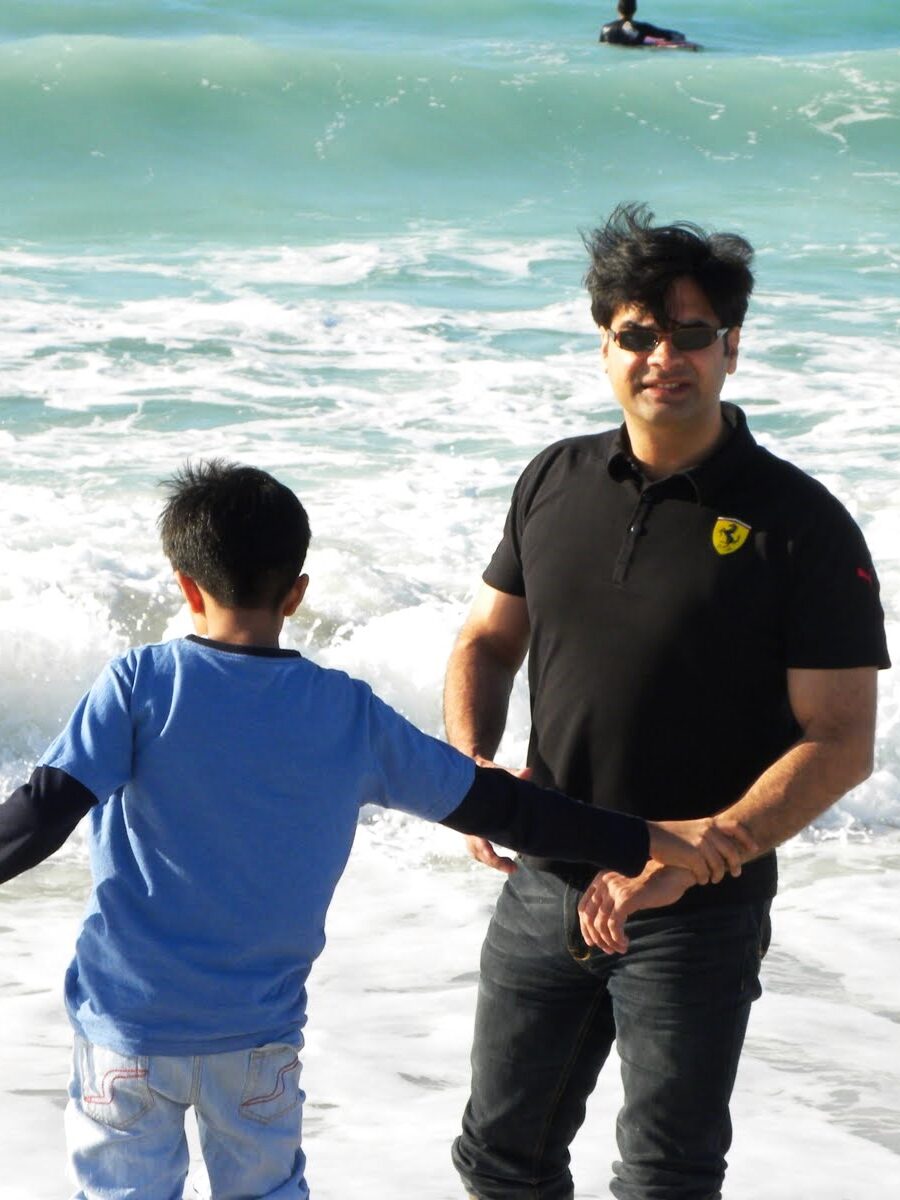Introduction

As parents, one of our deepest desires is for our children to respect us. But respect isn’t something that can be demanded or enforced. It’s a two-way street, especially when they begin to mature and develop their own identities. If you’re wondering why your kids aren’t showing you the respect you feel you deserve, it might be time to examine your own habits. The way you as a parent directly influences how your children see you and whether they hold you in high regard. Letting go of certain outdated habits can help you nurture a relationship built on mutual respect and understanding. let’s delve into this article to know more about 7 Habits to let go if you want to earn your growing kids’ respect and to build a strong bond.
Table of Contents
1. Understanding the Need for Respect from Growing Kids
Respect is fundamental to any healthy relationship, but it is especially important in parent-child dynamics. Kids, particularly as they enter their teenage years, are in a stage of self-discovery. They are learning about the world around them and figuring out who they are. In this stage, they need to feel respected as individuals to foster their own self-esteem. When children feel disrespected, it can lead to feelings of resentment, rebellion, or emotional withdrawal.
As a parent, it’s important to remember that respect is not just about obedience. It’s about acknowledging your child’s thoughts, emotions, and autonomy. When you respect their individuality, they are more likely to reciprocate by showing you respect in return.
Habit 1: Letting Go of Over-Controlling Behaviors
If you’re constantly hovering over your kids, trying to control every aspect of their lives, you might be unintentionally eroding their respect. While it’s natural to want to protect your children, over-controlling behaviors can lead them to feel powerless or incapable of making their own decisions.
Teens, in particular, crave autonomy as they move into adulthood. When you micromanage them, they can start to feel like they aren’t trusted or capable of handling their own lives. This can lead to resentment and a breakdown in the parent-child relationship. Instead of controlling every decision, give your kids the freedom to make mistakes, learn from them, and develop their own problem-solving skills.
Habit 2: Stop Using Fear as a Parenting Tool
Parenting through fear is a common tactic, but it can do more harm than good. Using fear—through threats, punishment, or manipulation—can create a toxic atmosphere where your kids obey you out of fear rather than respect. This fear-based approach can lead to anxiety, rebellion, or secrecy, and ultimately, your kids may not feel safe expressing their true feelings or concerns.
A far more effective method of parenting is to foster an environment where open communication and mutual respect are the norms. Instead of using fear to control your kids’ actions, encourage honest conversations where you can guide them through their challenges.
Habit 3: Letting Go of Judgmental and Critical Attitudes
Constant criticism, especially when it’s harsh or judgmental, is one of the fastest ways to lose your kids’ respect. While constructive feedback is important, being overly critical can lead to feelings of inadequacy, self-doubt, and resentment. Kids need to feel supported and understood, not constantly judged or criticized for every little mistake.
Focus on providing constructive feedback that helps your child grow, rather than constantly pointing out flaws. Acknowledge their efforts, and offer encouragement, even if the results aren’t perfect. This helps build their confidence and teaches them how to improve without feeling ashamed of their mistakes.
Habit 4: Stop Expecting Perfection from Your Kids
No one is perfect—not even you. So why expect perfection from your children? Setting unrealistic expectations can be damaging to their self-esteem. When kids are constantly trying to meet overly high standards, they can become frustrated or disillusioned with their efforts.
Instead, embrace the idea that imperfection is part of the human experience. Encourage your kids to try their best, but also teach them that mistakes are opportunities for learning. This mindset will help them feel more confident and respected in their own right, knowing that they don’t have to be perfect to be loved or valued.
Habit 5: Letting Go of Playing Favorites
Playing favorites among your kids may seem harmless, but it can create a rift between siblings and diminish respect for you as a parent. Children are highly perceptive and can easily pick up on favoritism, even if you think you’re hiding it well. This can lead to feelings of anger, jealousy, and division.
To foster an environment of respect, it’s essential to treat all your children equally. Acknowledge their unique qualities and strengths, but never show preferential treatment. When kids feel like they are valued equally, they are more likely to reciprocate that respect towards you and each other.
Habit 6: Stop Over-Rescuing Your Kids from Challenges
Over-rescuing your kids from challenges or hardships might feel like an act of love, but it can actually hinder their development. Kids need to learn how to navigate life’s difficulties on their own to build resilience and confidence. If you step in every time they struggle, they will never learn to solve problems independently.
While it’s natural to want to protect your children, sometimes it’s better to step back and allow them to handle challenges. Guide them with advice and encouragement, but give them the space to try things on their own. This will teach them how to problem-solve and boost their confidence, earning their respect in the process.
Habit 7: Letting Go of Ignoring Emotional Needs
Sometimes, parents focus so much on academic success or good behavior that they neglect their kids’ emotional needs. A child who feels emotionally invalidated is less likely to respect you. It’s crucial to recognize and validate your kids’ emotions, even when they seem irrational or difficult to understand.
Creating an emotionally safe space where your kids feel heard and understood will not only help them develop emotionally but also strengthen your relationship. When you show them that their feelings matter, they are more likely to respect you as a parent and an individual.
Conclusion
Respect is not a one-way street. To earn your growing kids’ respect, you need to let go of certain parenting habits that may be undermining your relationship. Over-controlling behaviors, fear-based tactics, judgmental attitudes, and unrealistic expectations all contribute to a lack of mutual respect. By letting go of these habits and fostering an environment of autonomy, open communication, and emotional validation, you can create a stronger, more respectful bond with your children.
Parenting isn’t about being perfect; it’s about growing and learning alongside your kids. As you evolve in your parenting approach, your kids will take notice, and respect will naturally follow.

Frequently Asked Questions about 7 Habits to let go if you want to earn your growing kids’ respect
- Why is respect important in parent-child relationships?
Respect is crucial in parent-child relationships because it fosters a healthy and positive environment. When children feel respected, they are more likely to respect their parents in return. This mutual respect strengthens the bond between parent and child, encourages open communication, and promotes emotional well-being. Without respect, children may feel misunderstood, undervalued, or rebellious, which can lead to strained relationships. - What are the signs that my child feels disrespected?
Signs that your child may feel disrespected include withdrawal, defiance, or a lack of engagement in conversations. If your child stops sharing their thoughts with you or avoids spending time with you, they might feel dismissed or unheard. Other signs can include increased irritability, acting out, or showing a lack of interest in family activities. Pay attention to changes in their behavior as a signal that respect may be lacking. - How can I foster respect without being too lenient?
Fostering respect doesn’t mean being overly lenient or permissive. It’s about setting clear boundaries while treating your child with fairness and understanding. Encourage open communication and be consistent in your rules. Show respect for their opinions, and in turn, they will learn to respect your guidance. Discipline should be constructive, focusing on teaching rather than punishing. - Is it too late to change my parenting habits?
It’s never too late to change your parenting habits. While it may take time for your children to adjust, making an effort to improve your relationship can have a positive impact, no matter their age. Children are perceptive and can recognize genuine changes in behavior. Showing them that you are willing to evolve will help rebuild trust and respect over time. - Can I earn my kid’s respect after a long period of not having it?
Yes, it’s possible to earn your kid’s respect even after a period of not having it. The key is consistency and sincerity. Start by acknowledging past mistakes, being open about your intentions, and showing that you’re committed to making positive changes. As your child sees that you are actively working to improve your relationship, they will begin to recognize your efforts and gradually restore their respect.
Connect with me on
Google profile: https://g.page/r/CQ_29tt0B4yaEBM/review
Instagram: https://www.instagram.com/positiveworld2632/
Facebook: https://www.facebook.com/pwcc38/
Linkedin: https://in.linkedin.com/in/sarita-saini-31150017
website: www.positiveworldcounselling.in

